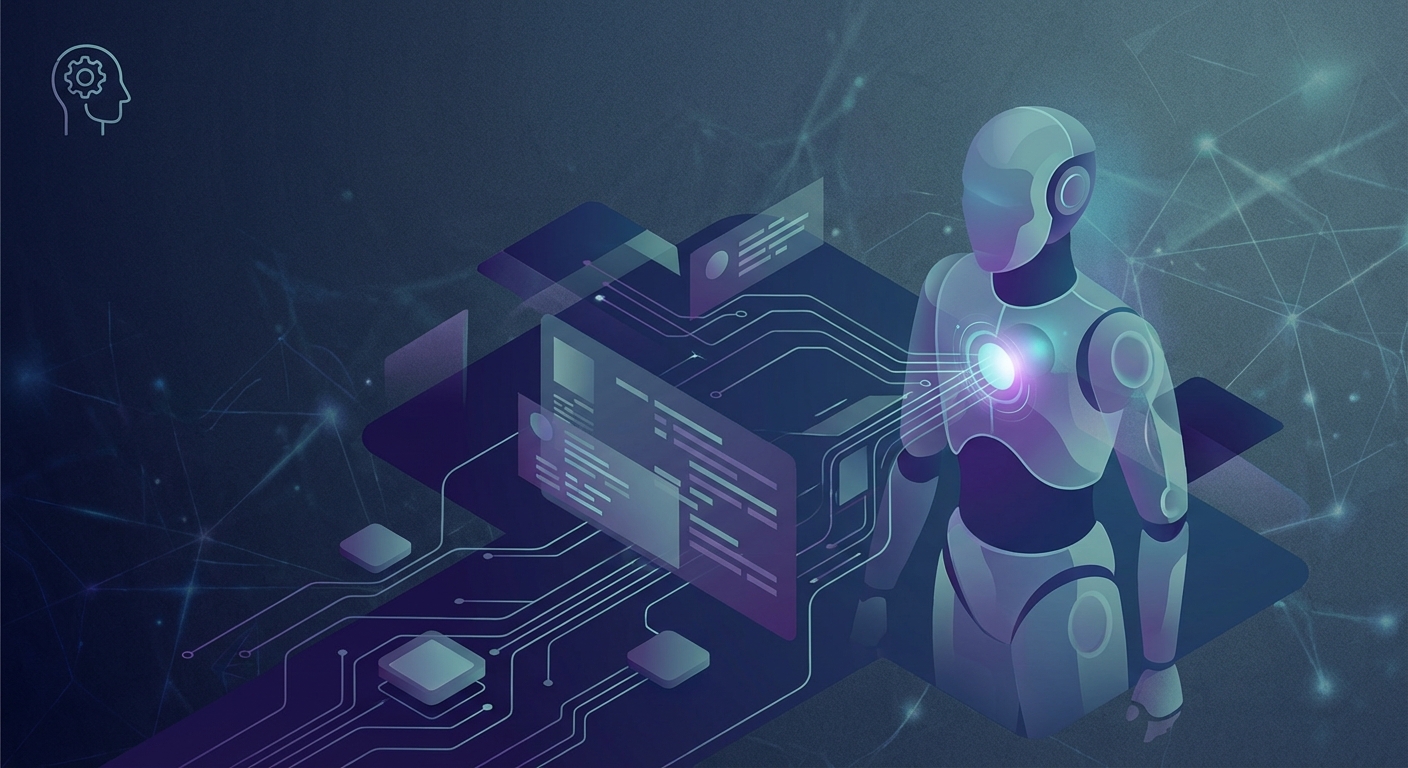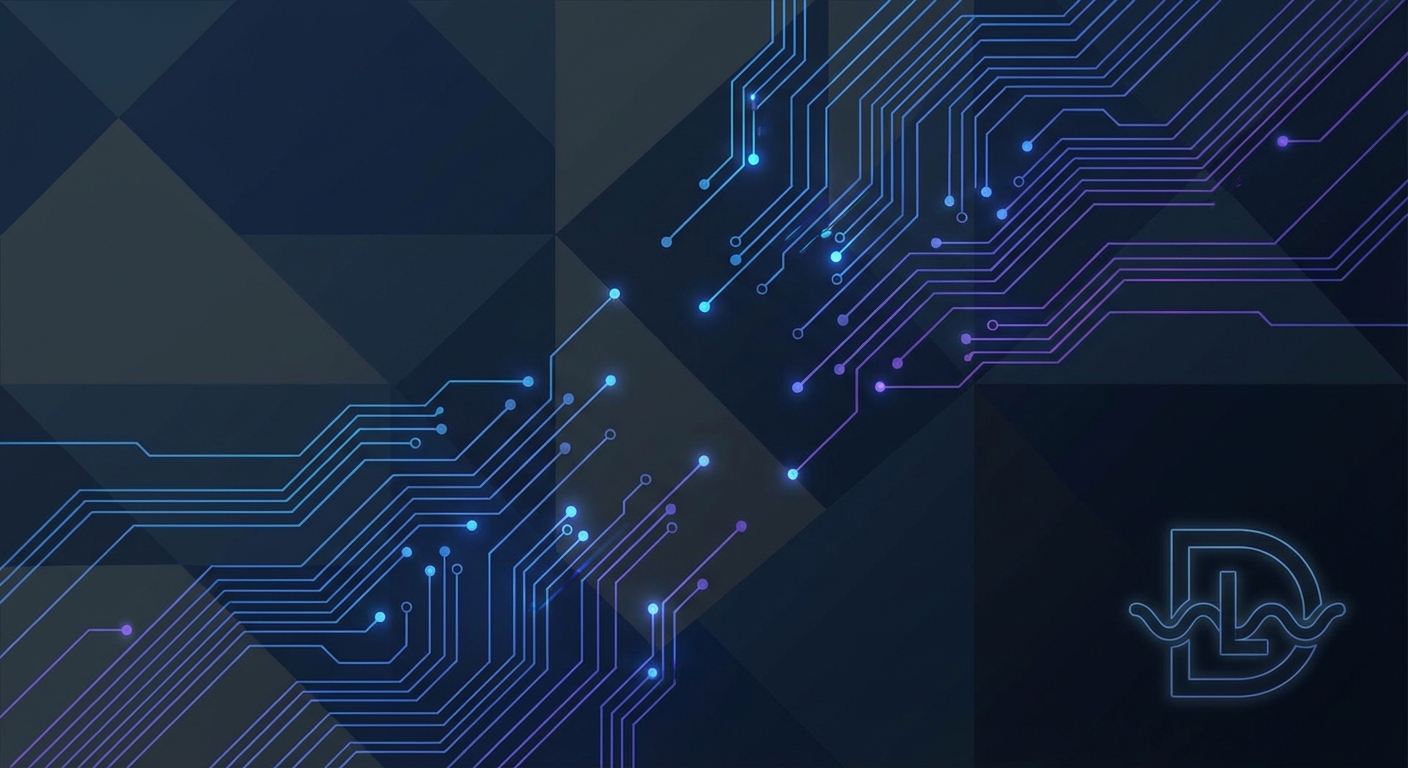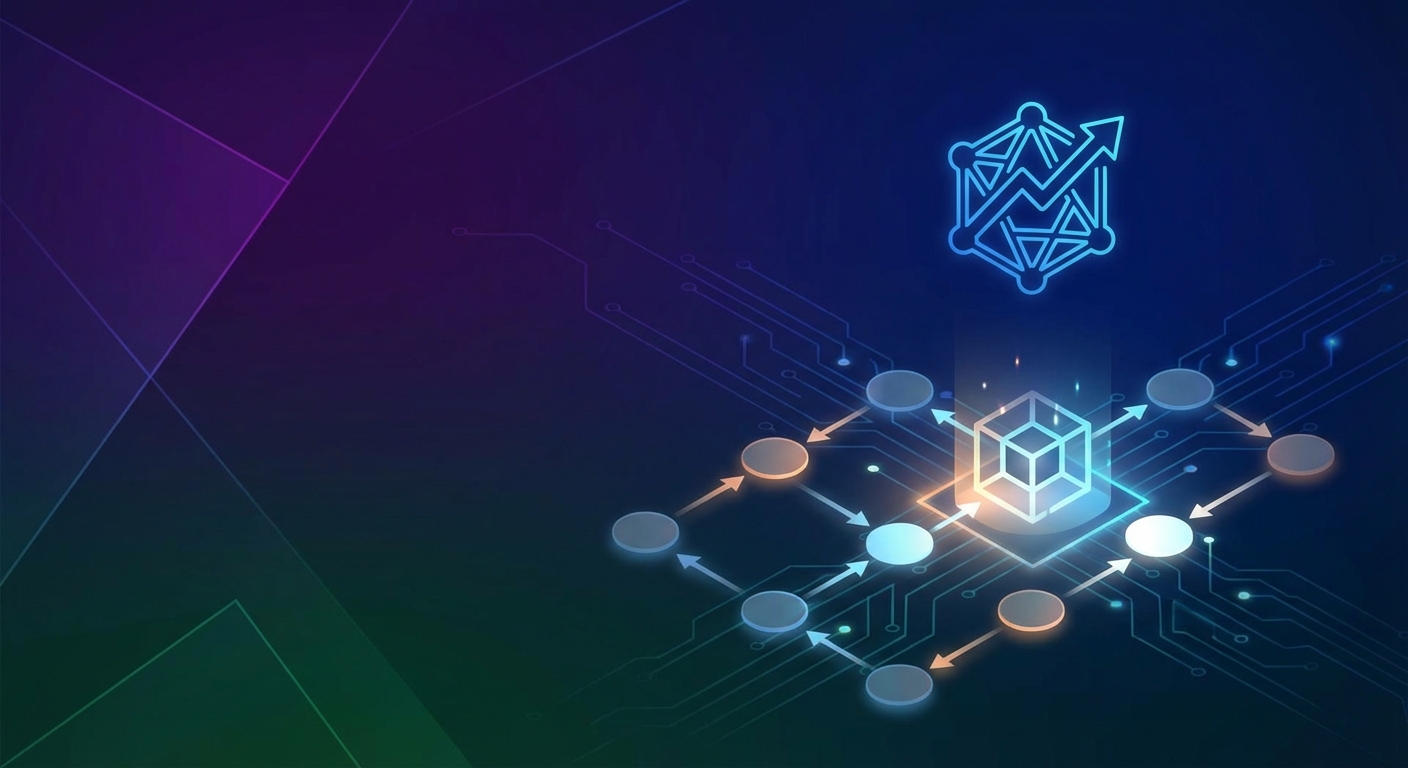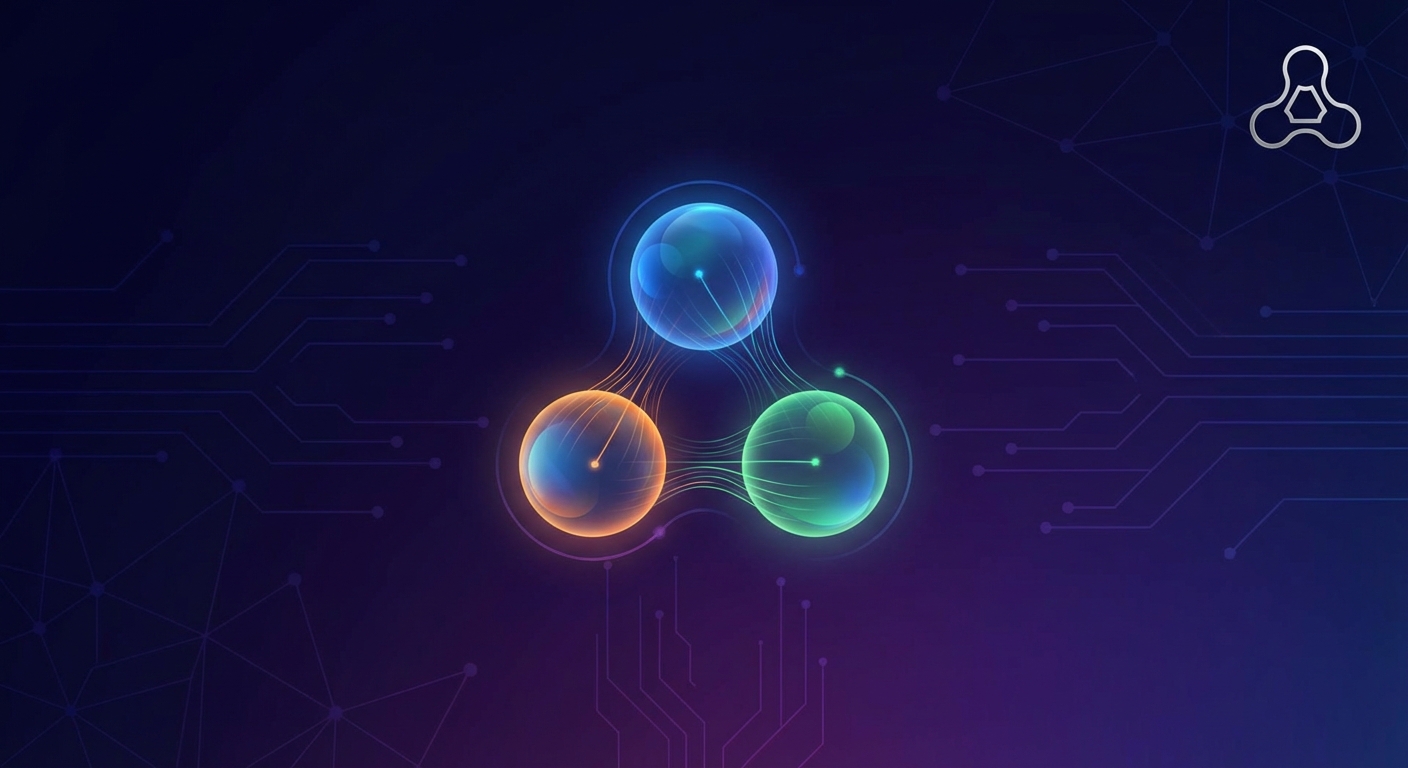Defining AI Agents in Development: Key Concepts and Applications
TL;DR
- This article covers the fundamental aspects of AI agents in development, outlining their core components, types, and deployment strategies. It also explores real-world applications across various industries, from automating customer service to optimizing supply chains. The piece also highlights key considerations for security, governance, and ethical ai implementation, ensuring responsible utilization.
Introduction to AI Agents
Okay, so, ai agents huh? You might be thinking, "another ai buzzword," and honestly, i get it. But these ain't your average chatbots; they're more like little digital helpers doing their own thing.
Here's the deal:
- Autonomy is key. ai agents can make decisions without you holding their hand every second. Think of it like a self-driving car, but for, like, your business processes.
- They're reactive. ai agents notice what's happening around them and respond accordingly. For instance, An ai agent in retail might detect a sudden surge in demand for a product and adjust inventory levels automatically.
- pro-activeness, they don't just react; they anticipate. A finance ai agent could forecast potential risks based on market trends and suggest preventative measures.
It's important to not that ai agents are different from other ai systems because of this autonomy and proactiveness. Most ai systems do what you tell them, ai agents work independently towards a goal.
So, what does this mean for you? Well, next up, we'll dive into the nitty-gritty of how these agents are actually developed.
Core Concepts in AI Agent Development
Alright, so you're probably wondering, how do these ai agents actually work under the hood? It's not magic, promise! It's all about the architectures, algorithms, and frameworks that developers use.
- BDI (Belief-Desire-Intention) architecture: This is a big one. Think of it as giving your agent a little brain with beliefs about the world, desires (goals), and intentions (plans to achieve those goals). For example, an agent managing a smart home might believe the living room is too dark, desire to brighten it, and intend to turn on the lights. It's like giving the agent a to-do list that it makes itself.
- Reinforcement learning-based agents: These agents learn by doing – and getting rewards or punishments. Imagine training a dog; you give it a treat when it does something right. Similarly, a reinforcement learning agent in a warehouse learns the best way to move packages by getting "rewards" for efficiency and "punishments" for errors. it's a trial and error thing, but with ai.
- Hybrid architectures: Sometimes, you need more than one approach. A hybrid architecture combines different techniques to get the best of both worlds. for instance, you might use a BDI architecture for high-level planning and reinforcement learning for fine-tuning specific actions. It's like having a project manager (BDI) and a team of specialized workers (reinforcement learning).
- Popular frameworks: You don't have to build everything from scratch. Frameworks like TensorFlow, PyTorch, and OpenAI Gym provide pre-built tools and libraries. It's like using LEGO bricks instead of making them yourself.
Here's what makes these agents tick:
- Planning and reasoning algorithms. These help agents figure out what to do to reach their goals. For example, an AI agent in logistics might use search algorithms like A* or Dijkstra's to find the most efficient delivery routes, considering factors like distance, traffic, and delivery windows. It involves breaking down a complex task into a sequence of smaller, manageable steps.
- Machine learning models for perception and action. ai agents use machine learning to understand their environment and take appropriate actions. A self-driving car, for instance, uses computer vision to "see" the road and machine learning to decide when to brake or turn.
- Natural language processing (nlp) for agent communication. If your ai agent needs to talk to humans (or other agents), nlp is essential. A customer service ai agent, for example, uses nlp to understand customer inquiries and provide helpful responses.
- Knowledge representation and reasoning. ai agents need to store and use knowledge about the world. A medical diagnosis ai agent, for example, needs to know about diseases, symptoms, and treatments to make accurate diagnoses.
So, that's a quick peek under the hood. Next, we'll look at some ways these agents are being used in the real world.
Types of AI Agents
So, ai agents, right? They ain't all created equal. Thinking about 'em, it's kinda like dogs; you got your Chihuahuas and your Great Danes—both dogs, but wildly different. Understanding these core concepts allows us to categorize agents based on their capabilities and how they interact with their environment.
Simple reflex agents: These are your basic, "if this, then that" kinda agents. Like a thermostat: if it's too cold, turn on the heat. Simple, but effective in very specific situations. You wouldn't ask it to forecast energy prices, tho.
Model-based reflex agents: These guys are a bit smarter. They have a "model" of the world, so they can make decisions based on what might happen. Imagine an agent controlling traffic lights; it uses a model to predict traffic flow and adjusts the lights accordingly.
Goal-based agents: Now we're talking! These agents have a specific goal in mind and will do whatever it takes to achieve it. A route planning ai agent is a example because it finds the fastest way from point A to point B, even if it means suggesting a detour through that sketchy part of town (kidding!).
Utility-based agents: These are the sophisticated ones. They don't just have goals; they also consider the utility (happiness, value, etc.) of achieving those goals. A financial trading ai agent is a prime example; because it aims to maximize profit while minimizing risk. For instance, it might choose a slightly longer but safer investment strategy over a riskier one with a potentially higher payout, based on its calculated utility function.
Learning agents: The future is here and it's learning! These agents can improve their performance over time by learning from their experiences. Think of a spam filter that gets better at identifying junk mail as you mark more emails as spam.
So, that's a quick rundown of the different types of ai agents based on their capabilities. Next up, we'll look at how they're classified based on what they do.
Applications of AI Agents Across Industries
AI agents are making waves across industries; it's not just hype, they're seriously changing how things get done. Ever wonder how your bank seems to catch fraud before you even notice it? ai agents are often the unsung heroes.
Customer Service
- Chatbots are just the tip of the iceberg; ai agents can handle complex customer queries, provide instant support 24/7, and even learn from past interactions to personalize the customer experience. Think about it, no more waiting on hold listening to that awful music.
- AI-powered helpdesks are becoming more sophisticated, automatically categorizing and prioritizing tickets, assigning them to the right agent, and even suggesting solutions based on similar past issues. This means faster resolution times and happier customers.. and less stress for the support team.
Healthcare
- ai agents are assisting in diagnosis and treatment planning, analyzing medical images, patient data, and research papers to identify potential health issues and recommend the best course of action. It's like having a super-powered medical consultant.
- Drug discovery is getting a boost from ai, which can analyze vast amounts of data to identify potential drug candidates and predict their effectiveness, drastically shortening the time and cost involved in bringing new drugs to market.
- Personalized medicine is becoming a reality as ai agents analyze individual patient data to tailor treatments to their specific needs and genetic makeup. Forget one-size-fits-all; it's all about precision now.
- Remote patient monitoring is also getting easier, ai agents can analyze real-time data from wearable devices to detect anomalies and alert healthcare providers to potential problems, allowing for proactive intervention.
Finance
- Fraud detection is a major application of ai agents in finance, which can analyze transactions in real-time to identify suspicious activity and prevent fraud before it happens. It's like having a digital bodyguard for your bank account.
- Algorithmic trading uses ai agents to execute trades based on pre-defined rules and market conditions, aiming to maximize profits while minimizing risk. It's not gambling if an ai is doing it, right?
- Risk assessment is being transformed by ai agents that can analyze vast amounts of data to identify potential risks and assess their impact, helping financial institutions make better decisions.
- Personal finance advisors powered by ai are emerging, providing personalized financial advice and recommendations to individuals based on their financial goals and risk tolerance.
Retail & Supply Chain
- Inventory optimization uses ai agents to predict demand and optimize inventory levels, reducing waste and ensuring that the right products are available at the right time.
- Demand forecasting is getting more accurate with ai agents, which can analyze historical data, market trends, and other factors to predict future demand and adjust production accordingly.
- Logistics automation uses ai agents to optimize routes, manage fleets, and automate warehouse operations, improving efficiency and reducing costs.
Manufacturing
- Robotics and automation are being enhanced by ai agents that can control robots and automate manufacturing processes, improving efficiency and reducing errors.
- Quality control is getting a boost from ai agents that can analyze images and other data to detect defects and ensure product quality.
- Predictive maintenance uses ai agents to analyze data from sensors and other sources to predict when equipment is likely to fail, allowing for proactive maintenance and preventing downtime.
- Process optimization uses ai agents to identify bottlenecks and inefficiencies in manufacturing processes and recommend improvements.
So, that's just a taste of how ai agents are being used across industries. Next, we'll explore the challenges and ethical considerations involved in developing and deploying these powerful tools.
Deployment and Orchestration of AI Agents
So, you've built your ai agent – awesome! But now what? You can't just leave it sitting on a shelf; it needs to get out there and, well, do stuff. That's where deployment and orchestration come in. Think of it like this: your agent is the star athlete, and deployment/orchestration is the training facility and coaching staff.
First off, you gotta figure out where your ai agent is gonna live. You got options, and each has its perks:
- Cloud deployment: This is often the easiest way to go, especially if you're already using cloud services. It's scalable, flexible, and you don't have to worry about managing servers. Plus, you can access it from anywhere.
- On-premise deployment: If you're dealing with sensitive data or need super-low latency, on-premise might be the way to go meaning keeping everything in-house. It gives you more control, but it also means you're responsible for all the maintenance and security.
- Edge computing: For ai agents that need to react in real-time, edge computing is where it's at. Think self-driving cars or automated robots in a factory. The ai agent runs on hardware close to the data source, minimizing latency.
- Hybrid deployment: Can't decide? Go for both! A hybrid approach lets you run some parts of your ai agent in the cloud and others on-premise or at the edge, giving you the best of all worlds.
Okay, so your agent is deployed. Now, how do you manage it? That's where orchestration comes in. These tools help you automate deployment, scaling, and monitoring of your ai agents.
- Kubernetes is a big player here. It's like a conductor for your ai agents, making sure they're all running smoothly and efficiently.
- Docker helps you package your ai agent and all its dependencies into a container, making it easy to deploy and run anywhere.
- Service mesh provides a dedicated infrastructure layer for managing communication between your ai agents, ensuring reliability and security.
- AI agent platforms like LangChain or Microsoft Azure AI Agents offer specialized tools and frameworks designed to simplify the development, deployment, and management of AI agents, often providing features beyond general orchestration tools like Kubernetes by offering built-in capabilities for agent chaining, memory management, and tool integration.
Your ai agent probably isn't going to live in a vacuum; it needs to talk to other systems. That's where integration comes in.
- API integration is the most common way to connect ai agents to other applications. It's like giving your agent a set of instructions it can use to request data and trigger actions in other systems.
- Middleware acts as a translator between your ai agent and other systems, handling data transformation and communication protocols.
- Data pipelines ensure that your ai agent has access to the data it needs to make informed decisions. They automate the process of extracting, transforming, and loading data from various sources.
So, deployment and orchestration – it's not the sexiest part of ai agent development, but it's crucial. Next up, let's dive into security and governance.
Security and Governance
Okay, so you've got your ai agents up and running, but are they secure? Are you sure? Because, honestly, leaving them unprotected is like leaving the keys to your kingdom under the doormat.
Here's what you should be worrying about:
- Threat modeling: Gotta think like the bad guys. What could go wrong? What are the potential attack vectors? For example, could someone trick your customer service agent into revealing sensitive info? Threat modeling helps you identify these risks before they become problems.
- Vulnerability management: Think of this as regular check-ups for your agents. Scan for known vulnerabilities in the software and libraries they use. A vulnerability in a common nlp library, for instance, could be exploited to gain control of your agent.
- Access control: Not every agent needs access to everything. Implement the principle of least privilege, giving each agent only the permissions it needs to do its job. An agent responsible for sending marketing emails, for instance, shouldn't have access to your customer database.
- Data encryption: Protect your data, both in transit and at rest. Encrypt sensitive data stored by your agents, and use secure protocols like https for communication. If an attacker does manage to get their hands on your data, encryption makes it much harder for them to use it.
- API Security: Securing the apis that your ai Agents use is very important because it prevents an attacker from getting access to the ai agents.
Security is only half the battle. You also need to think about governance.
- Policy management: Define clear policies for how your ai agents should be used. What are they allowed to do? What are they not allowed to do? A policy might state, for example, that a financial trading agent cannot make trades that violate regulatory guidelines.
- Compliance monitoring: Make sure your ai agents are following the rules. Continuously monitor their behavior to detect any violations of your policies or relevant regulations.
- Audit trails: Keep a record of everything your ai agents do. This makes it easier to track down the cause of problems and demonstrate compliance with regulations.
- Ethical AI Considerations: This is a big one. We need to ensure our agents are fair, unbiased, and transparent. For example, an AI agent used for hiring should be rigorously tested to ensure it doesn't discriminate based on protected characteristics. Transparency means understanding why an agent made a certain decision, which is crucial for accountability and trust. Strategies to mitigate bias include using diverse training data, implementing fairness metrics during development, and conducting regular ethical audits.
Identity and Access Management (IAM) is very important for ai agents.
- AI Identity Management: You need to be able to identify which ai agent is doing what, and track there activity. This helps in auditing and debugging.
- AI Access Control: You need to control what data and systems each ai agent can access, adhering to the principle of least privilege.
- AI Agent Authentication: You need to make sure an ai agent is who it says it is, preventing impersonation.
- AI Agent Authorization: You need to authorize what an ai agent can do once its identity is confirmed.
Next, let's talk about the hurdles and exciting future directions for AI agents.
Challenges and Future Trends
AI agents: sounds cool, right? But it's not all sunshine and rainbows; there are some real hurdles to overcome. And, yeah, some things to look forward to.
Here's the deal:
- Complexity is a biggie. Building these things ain't easy. You're not just throwing some code together; you're dealing with complex algorithms and architectures. It's like trying to build a skyscraper with LEGOs – possible, but kinda tricky.
- Data, data, everywhere, but not a drop to drink? AI agents need a lot of data to learn and perform effectively. And, it needs to be good data. Think about a customer service agent: if it's trained on bad data, it's gonna give bad advice.
- Ethics, dude. We can't just unleash these agents without thinking about the consequences. Algorithmic bias, data privacy – it's a real can of worms.
But, look, it's not all doom and gloom.
- AI is getting smarter, faster. Advancements in machine learning and other ai fields are making it easier to build more powerful and capable agents.
- More and more industries are jumping on the bandwagon. From healthcare to finance, ai agents are finding new applications every day.
- Ethical ai is becoming a priority. People are starting to realize that we need to build ai responsibly, with fairness and transparency in mind.
So, what's next? Figuring out how to actually manage the lifecycle of these things, and ensuring they operate safely and effectively in increasingly complex environments.
Conclusion
Alright, so we've been diving deep into the world of ai agents – pretty wild, huh? But what's the real takeaway here?
- AI agents are more than just fancy software; they're like digital teammates that can automate tasks, make decisions, and even learn from their mistakes. Think of a utility-based agent in finance optimizing investment portfolios – that's some serious firepower. It would analyze market data, assess risks and potential returns for various investment options, and then select a portfolio that maximizes its calculated utility function, which might balance profit with acceptable risk levels.
- Security and governance are non-negotiable. Seriously, don't skimp on this. You wouldn't leave your office unlocked, would you? Treat your ai agents the same way, with robust access control and monitoring.
- The potential is huge, but it's not magic. AI agents can transform industries, from healthcare to supply chain management, but it takes careful planning, ethical considerations, and a whole lot of data.
So, where do we go from here? Well, the future of ai agents is lookin bright, but it's up to us to explore the possibilities and build these tools responsibly.










